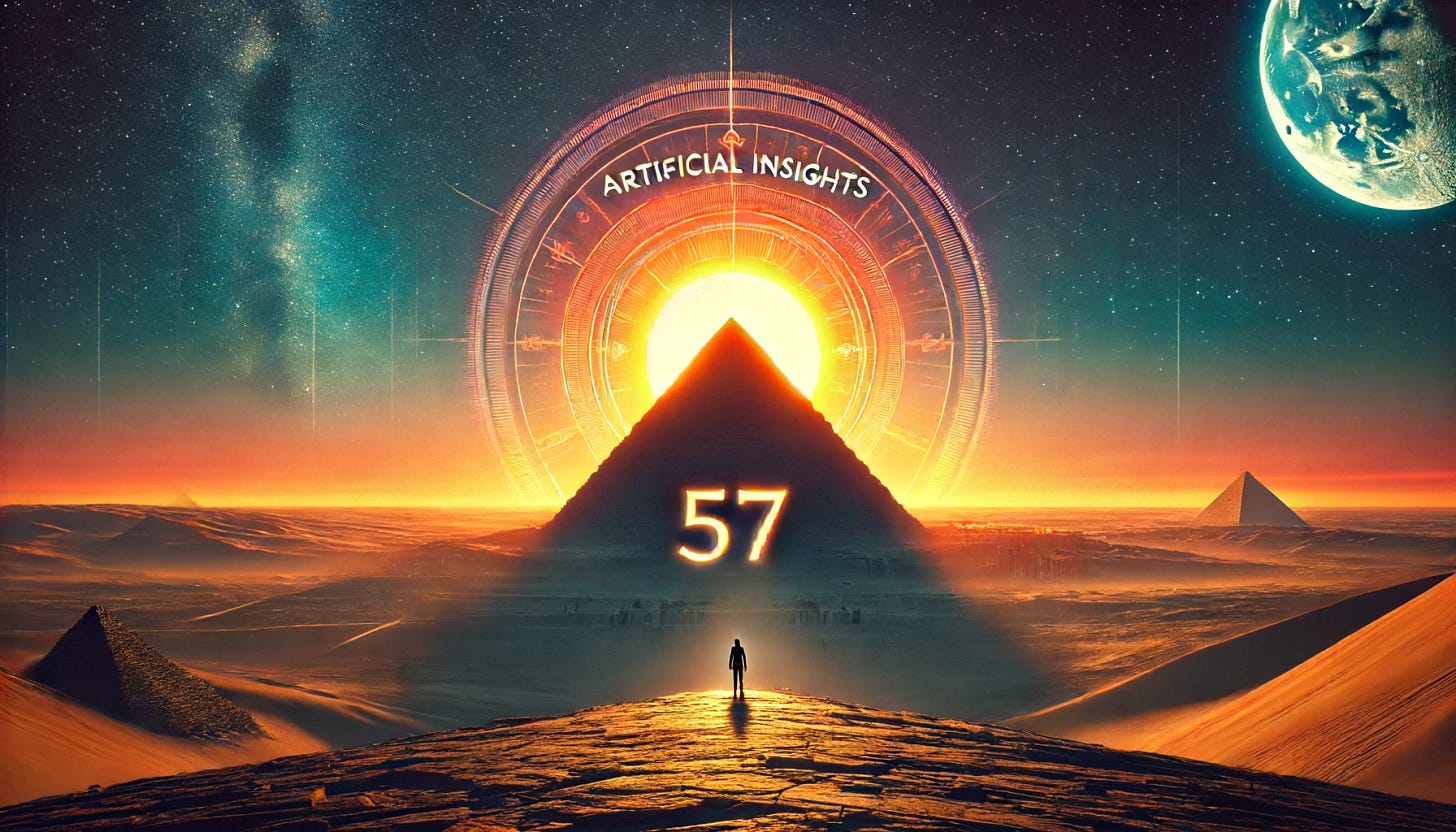Happy solstice week and welcome to your weekly guide to navigating artificial intelligence.
How do you talk about something without hyping it? How do you avoid misrepresenting your observations while maintaining a level of excitement about something that is clearly going to affect a lot of people?
I try maintaining an equanimous view of technology – it is neither utopian, dystopian or protopian to me. Technology is an extension of our humanity, and how we utilize it says a lot about our values. Yet it is impossible to judge such hyperobjects in any meaningful way. That doesn’t mean we should abandon morals, but rather not try to classify technology as being something or the other. The only thing that matters is how we use it.
I am not sure whether such equanimity extends to AI. You could argue that all technology is out of our control, and that the technium is a form of superstructure with emergent characteristics and therefore it was never ours to control. But there is something inherently different with autonomous technology. It acts uncannily and messes with our expectations of how technology should behave. AI will only grow in size and relevance, and how it shapes our perception of the world should be strongly considered in how we act, plan and legislate moving forward.
Nobody is individually capable of shaping the development of AI. It will manifest as a combination of multiple areas of research combined with nearly infinite different applications. Somewhere at the intersection of computer science, statistics, ethics and linguistics sits AI, almost as a culmination of our capabilities. The sum total of what we know. There is no panic button for something like this. Much like how the internet was designed to withstand nuclear war, AI cannot be unplugged. It will keep developing and extending in vectors we can barely fathom.
Where it goes from here depends only on us, and our ability to seize the moment, inform ourselves, and make better collective decisions. The alternative is having this inflection point seized by those with deepest pockets, who will inevitably shape the outcome towards greater personal benefit.
As a collective technology, AI needs to be belong to everyone.
Until next week,
MZ
Job Evolution in the Age of AI
Optimistic and informed short talk about Singapore’s initiatives in upskilling labor preparing the population for AI.
One in every three workers globally will find their jobs significantly impacted due to technology in this decade. And that's not just bank tellers, factory workers, and warehouse staff, but executive managers and office workers too.
If you're catching up to Apple's WWDC keynote, I would recommend these summaries:
MKBHD’s video summary.
Ethan Mollick’s newsletter.
Apple Intelligence in 5 minutes (Apple)
Simon Willison’s newsletter.
Technical explainer of Apple's ML stack, including adapters, orchestration and private cloud compute.
Apple’s presentation rang very different than most AI keynotes we’ve seen in the last few years. While OpenAI and Google are trying to prove that they are the best at AI, Apple leaned into a narrative of what else we can do with AI. Apple’s large suite of new AI features coming this fall across all their devices, enabling automation, information retrieval, and generation in a privacy-conscious way will be the first time that many people meaningfully interact with AI.
Bit of a long read but this post from r/wallstreetbets really captures the vibe I’ve been getting from most techies working in AI - that we are running down a way street with very little idea of what’s on the other side of the transition.
Long interview with Leopold Aschenbrenner about AI risk (if you want to go down that particular rabbit hole). More context.
If Artificial Insights makes sense to you, please help us out by:
📧 Subscribing to the weekly newsletter on Substack.
💬 Joining our WhatsApp group.
📥 Following the weekly newsletter on LinkedIn.
🏅 Forwarding this issue to colleagues and friends.
🦄 Sharing the newsletter on your socials.
🎯 Commenting with your favorite talks and thinkers.
Artificial Insights is written by Michell Zappa, CEO and founder of Envisioning, a technology research institute.
You are receiving this newsletter because you signed up on envisioning.io or Substack.






